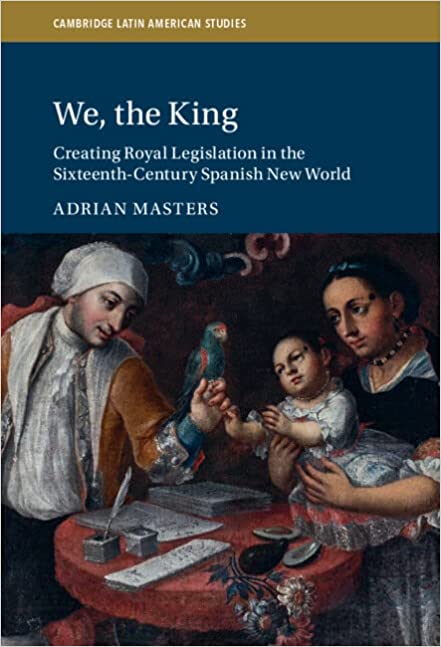We, the King
creating royal legislation in the sixteenth-century Spanish New World
- ISBN: 9781009315418
- Editorial: Cambridge University Press
- Fecha de la edición: 2023
- Lugar de la edición: Cambridge. Reino Unido
- Colección: Cambridge Latin American Studies
- Encuadernación: Cartoné
- Medidas: 24 cm
- Nº Pág.: 342
- Idiomas: Inglés

We, the King challenges the dominant top-down interpretation of the Spanish Empire and its monarchs' decrees in the New World, revealing how ordinary subjects had much more say in government and law-making than previously acknowledged. During the viceregal period spanning the post-1492 conquest until 1598, the King signed more than 110,000 pages of decrees concerning state policies, minutiae, and everything in between. Through careful analysis of these decrees, Adrian Masters illustrates how law-making was aided and abetted by subjects from various backgrounds, including powerful court women, indigenous commoners, Afro-descendant raftsmen, secret saboteurs, pirates, sovereign Chiriguano Indians, and secretaries' wives. Subjects' innumerable petitions and labor prompted - and even phrased - a complex body of legislation and legal categories demonstrating the degree to which this empire was created from the "bottom up". Innovative and unique, We, the King reimagines our understandings of kingship, imperial rule, colonialism, and the origins of racial categories.
Prelude: A Peruvian pestizo at the Spanish Court
Introduction: the collective making of an empire
1. Paper ceremonies for a global empire: Gobierno petitions and the collective work of Voluntad
2. The co-creation of the Imperial Logistics Network
3. Distant kings, powerful women, prudent ministers: the gendered creation of the Council of the Indies
4. Lawmaking in a portable council: Gobierno decision-making technologies before 1561
5. 'Bring the Papers:' Royal decision-making and the power of archives in Madrid, 1561-1598
6. Creating the royal decree: format, phraseology, and petitioners' transformation of Indies law
7. Pedro Rengifo's epilogue: subjects of chance






